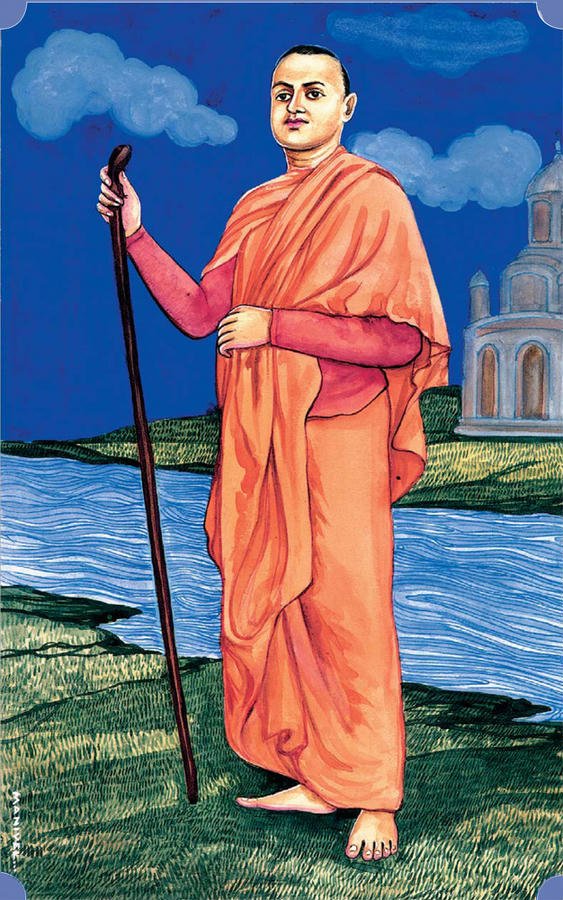
C H A P T E R 30§
Karma and
Reincarnation
________________§
Insights from Swami Vivekananda on
How We Each Forge Our Own Destiny§
________________§
 ust before the turn of the 20th century, swami vivekananda, a brilliant young Hindu monk from India, preached about the great law of karma in the United States to all who drew near. He explained, “Any word, any action, any thought that produces an effect is called karma. Thus, the law of karma means the law of causation, of inevitable cause and effect. Whatever we see or feel or do, whatever action there is anywhere in the universe, while being the effect of past work on the one hand, becomes on the other, the cause in its turn and produces its own effect. Each one of us is the effect of an infinite past. The child is ushered into the world not as something flashing from the hands of nature, as poets delight so much to depict, but he has the burden of an infinite past. For good or evil, he comes to work out his own past deeds. This makes the differentiation. This is the law of karma. Each one of us is the maker of his own fate.” §
ust before the turn of the 20th century, swami vivekananda, a brilliant young Hindu monk from India, preached about the great law of karma in the United States to all who drew near. He explained, “Any word, any action, any thought that produces an effect is called karma. Thus, the law of karma means the law of causation, of inevitable cause and effect. Whatever we see or feel or do, whatever action there is anywhere in the universe, while being the effect of past work on the one hand, becomes on the other, the cause in its turn and produces its own effect. Each one of us is the effect of an infinite past. The child is ushered into the world not as something flashing from the hands of nature, as poets delight so much to depict, but he has the burden of an infinite past. For good or evil, he comes to work out his own past deeds. This makes the differentiation. This is the law of karma. Each one of us is the maker of his own fate.” §
Through the ripening of the fruits of his actions he does not attain any rest, like a worm caught within a whirlpool. The desire for liberation arises in human beings at the end of many births, through the ripening of their past virtuous conduct.§
YAJUR VEDA, PAINGALA UPANISHAD 2.22 §
